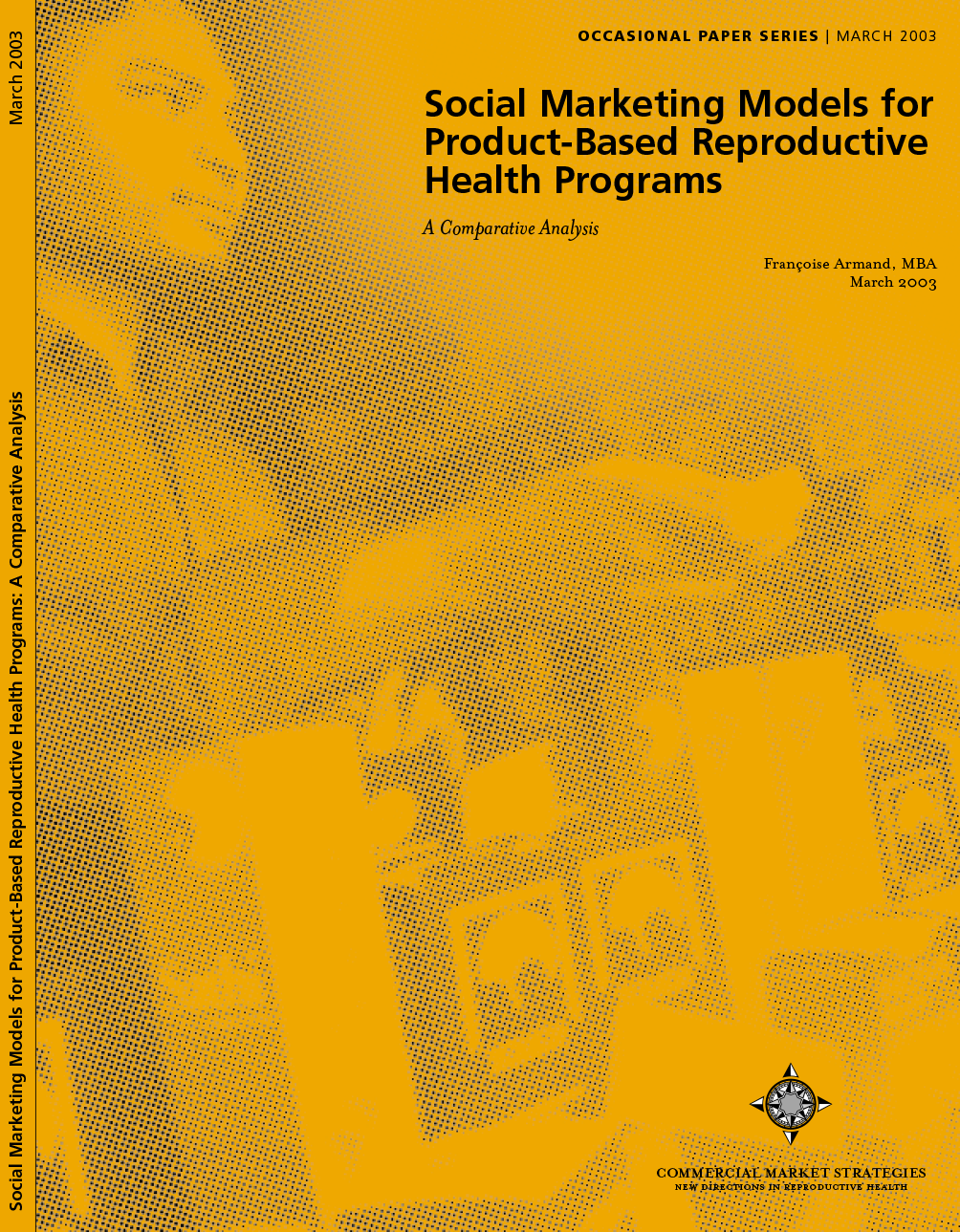
Resource Library
Social Marketing Models for Product-Based Reproductive Health Programs: A Comparative Analysis
Social marketing models for product-based reproductive health programs in developing countries typically have been defined according to the organization that manages them. This paper explores the major differences and similarities between two classic social marketing models: the NGO and manufacturer's models. These approaches afford different levels of control over the marketing mix, a central component of the social marketing strategy, with resulting variations in expected program impact and sustainability. Each model in its classic interpretation presents advantages and limitations related to its reliance on donor funding and potential commercial-sector participation. The NGO-based model is potentially more effective in reaching low-income and hard-to-reach populations because it affords more flexibility over price and distribution, but it may be harder to sustain without continued donor funding. In contrast, the manufacturer's model comes with inherent product sustainability as it uses existing commercial brands, but this approach is limited in its ability to meet the needs of people outside the mainstream, middle-income population. Other approaches can be found in the developing world that do not conform to either model, but rather borrow from both. Many social marketing programs have adopted context-specific approaches that include partial or total cost-recovery and income-generating activities and partnerships between NGOs and manufacturers. These hybrid models represent the next generation of social marketing programs and suggest a flexible approach to program design, using management style and combinations of the marketing mix to fit a specific context. Donors and implementing agencies are advised to take into account several key factors when designing social marketing programs, including project goals, cost considerations, market context, and the existence of potential commercial partners.
Resource Type : Other
Country :
Year : 2003-03-01T15:30:00
Language : English
Project : SHOPS


